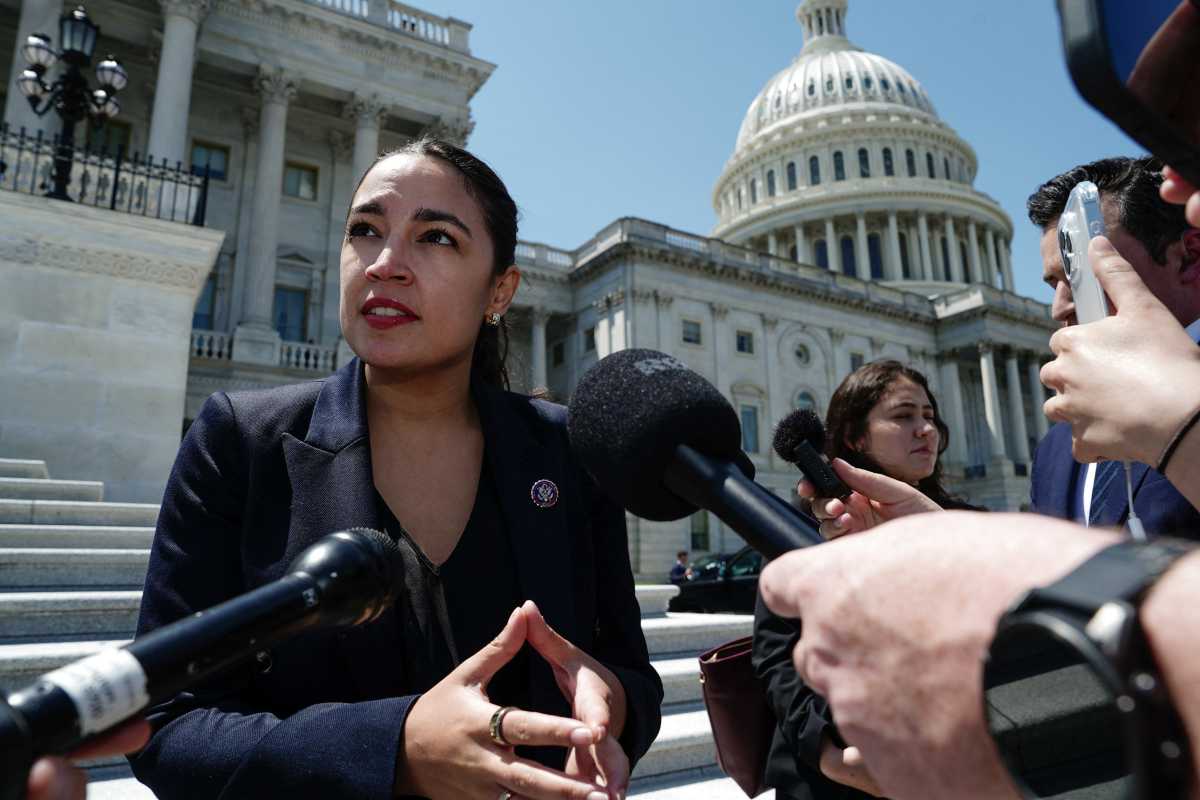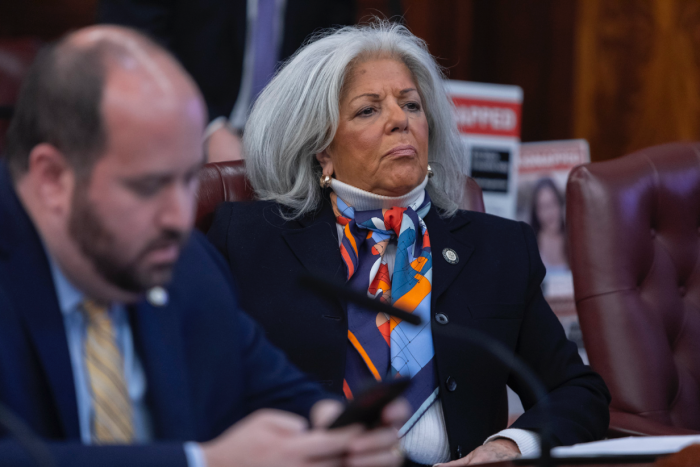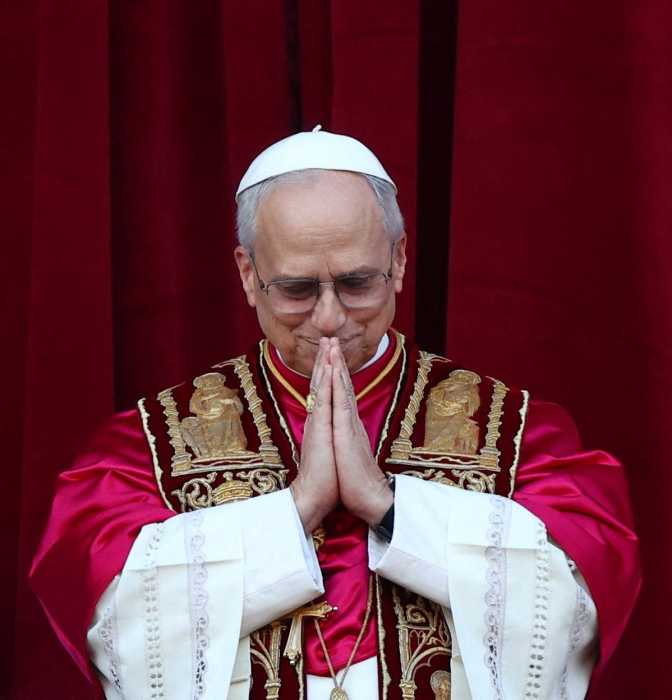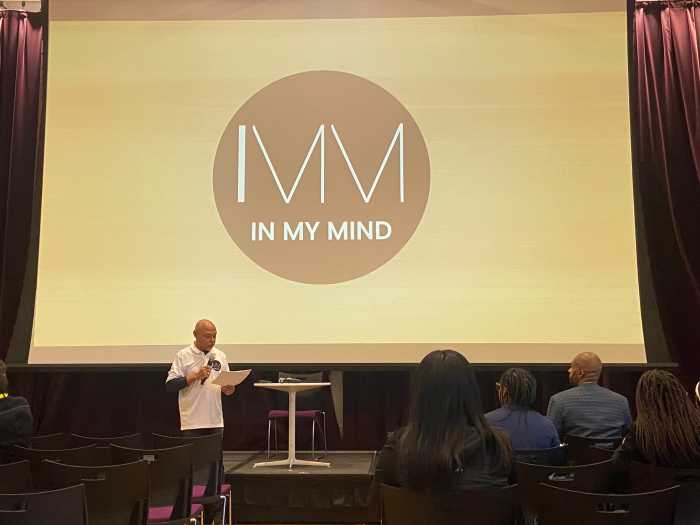Elected officials across Queens have criticized the Trump Administration and Republican lawmakers for passing the “One Big Beautiful Bill” last week, stating that the federal budget bill will have “dangerous and rippling effects” across New York City and State.
President Donald Trump signed the bill into law on July 4 after the House narrowly voted 218-214 to approve it on Thursday. Earlier last week, Vice President JD Vance cast a tie-breaking vote to break a 50-50 tie in the Senate.
The bill, which includes several signature policies of the Trump Administration’s agenda, permanently extends Trump’s 2017 Tax Cuts and Jobs Act, which lowered taxes for corporations and for individuals across most income brackets. The tax cuts introduced in 2017 were scheduled to expire at the end of the year.
Critics have criticized the tax cuts, stating that they broadly favor higher-income earners.
Additionally, the bill significantly increases state and local tax deductions (SALT), raising the cap on how much taxpayers can deduct from the amount they owe in federal taxes from $10,000 to $40,000.
Trump’s bill also includes massive boosts to defense and immigration spending, including a $150 billion budget increase for the US military and allocating $100 billion to Immigration and Customs Enforcement (ICE), which will be used to hire more ICE personnel and almost double migrant detention capacity in the United States.
Prior to the Big Beautiful Bill, ICE’s annual budget was around $8 billion. The budget increase makes ICE the largest federal law enforcement agency, according to the non-profit Brennan Center for Justice.
To pay for these measures, the bill includes significant cuts to programs such as Medicaid and Supplemental Nutrition Assistance Program (SNAP), which is used by over 40 million low-income Americans. The bill requires states to contribute more to SNAP, which is currently fully funded by the federal government.
Trump has introduced a number of changes and restrictions to Medicaid, including a new work requirement for childless adults without disabilities and shifting re-enrollment from once a year to every six months. Senate Republicans have also proposed steeper cuts to Medicaid funding by incrementally lowering provider rates from 6% to 3.5% by 2032, which critics state will shrink the resource pool that states use to draw federal matching funds.
Although the bill proposes steep cuts across healthcare and nutritional assistance programs, it does not cover all of the spending increases that Trump has called for, according to the Congressional Budget Office, which estimates that the bill would add $3.4 trillion to federal deficits by 2034.
Elected officials across Queens slammed the potential impact of the bill, criticizing Republicans for attacking programs that working-class families rely on while handing tax breaks to the “ultra wealthy.”
U.S. Rep. Alexandria Ocasio-Cortez, speaking on the House floor last Wednesday, described the legislation as a “deal with the devil.”

“It explodes our national debt. It militarizes our entire economy, and it strips away health care and basic dignity of the American people,” Ocasio-Cortez said.
Ocasio-Cortez also attacked Trump over the no-tax tips measure included in the Big Beautiful Bill, noting that the deduction for tips is limited to $25,000 per year. Meanwhile, a similar no-tax overtime measure is limited to $12,500 per year.
Ocasio-Cortez called the measure a “scam” and said cuts to federal programs such as Medicaid and SNAP make any tax deductions worthless for people working in tipped positions.
“So if you’re at home and you’re living off tips, you do the math. Is that worth it to you? Losing all your health care, not able to feed your babies, not being able to put a diaper on their bottom,” Ocasio-Cortez said.
U.S. Rep. Nydia Velázquez, representing parts of Queens and Brooklyn, said the bill will make Americans sicker, hungrier and poorer while “funneling” more tax breaks to the wealthiest people in the country. She added that the bill will remove healthcare from 1.5 million New Yorkers and estimated that it would remove 65,000 healthcare jobs in New York State alone.
“This bill guts Medicaid, forces hospitals to close, and eliminates over 65,000 health care jobs in New York alone,” Velázquez said in a statement. “It could result in over 50,000 preventable deaths each year nationwide. Republicans have also decimated SNAP, the program that helps millions of children, seniors, and working families keep food on the table. In New York, nearly 3 million people rely on SNAP to survive.”
U.S. Rep. Grace Meng also delivered a scathing assessment of the bill, describing the House’s narrow vote in favor as a “sad day” for the American people.
“I’m disappointed that my colleagues across the aisle put billionaires over hardworking families and passed a bill that will slash funding for our health care system, hospitals, and nursing homes,” Meng said in a statement on X. “This legislation puts Americans at risk—leaving many without access to doctors, food, or the resources they need, all while the wealthy continue to prosper.”
State Sen. Kristen Gonzalez, meanwhile, said the bill will result in millions of New Yorkers losing access to healthcare and public benefits such as SNAP. Gonzalez said the New York State legislature must respond to the bill, adding that state lawmakers should be ready to reconvene and hold a special session to address the cuts.
“We must pass revenue-raising legislation to mitigate the harm of these cuts and take care of New Yorkers’ basic needs,” Gonzalez said.
State Sen. John Liu said the bill will hurt a significant number of people in Queens with “vindictive” cuts to healthcare, adding that the tax cuts outlined in the bill will not provide relief for the vast majority of Queens residents.
“The bad, ugly bill hurts an enormous number of people in Queens with vindictive cuts in healthcare, housing, and other provisions that we all pay for in federal taxes and provides zero tax relief to 99% of Queens residents,” Liu said. “The Trump administration has taken from us with their left hand, and taken from us again with their right hand.”
He also called for any Republican who voted in favor of the legislation to be voted out of office.
Assembly Member Jenifer Rajkumar described the bill as a “raw deal” for the working class and a “serious blow” to the healthcare system. She said the bill guts almost $1 billion from Medicaid across the US as well as removing healthcare from 12 million people across the country.
“That’s not reform—it’s a direct hit on the people who need help the most,” Rajkumar said. “Here in New York, over 7 million of our neighbors rely on Medicaid. Hospitals, clinics, and frontline providers count on that funding to care for our communities.”
Assembly Member Claire Valdez accused Trump and the Republican Party of betraying working people and keeping promises to the “billionaire class.”
“The impacts on workers and families will be dire. It’s imperative that New York lead in this moment and step up to protect these essential programs and services by taxing the wealthy,” Valdez said.
Likewise, Queens Borough President Donovan Richards described the legislation as a betrayal of working families and a “sadistic attack” on the values that Queens holds dear. He also described the bill as the “largest transfer” of wealth from poor to rich in American history and labeled the Trump Administration as an “authoritarian regime.”
“This law — the largest transfer of wealth from the poor to the rich in American history — will rip healthcare away from the most vulnerable among us, threaten the very existence of our medical facilities, embolden ICE’s terrorizing of our communities and raise energy bills across our borough,” Richards said in a statement.
Council Member Julie Won said there was “nothing beautiful” in the proposed cuts to Medicaid and SNAP benefits and said the bill would hurt the working class.
“These are programs that working-class New Yorkers need. Our families deserve real support, not budget cuts dressed up as progress. I will make sure our local government provides safety nets for the most vulnerable,” Won said.
Council Member Sandra Ung also criticized the legislation, stating that it will have “serious and long-lasting consequences” for the people of Queens.
“The legislation passed by Congressional Republicans slashing federal funding for Medicaid, food assistance, and housing programs under the guise of eliminating ‘waste’ is not fiscal responsibility, it’s cruelty disguised as policy,” Ung said.
Some Queens politicians did not share concerns over the legislation, however.
Council Member Vickie Paladino, a Republican representing parts of Whitestone, Bayside, and College Point, said the legislation delivers on Trump’s campaign promises, including “border security, fiscal discipline, and low taxes,” although she acknowledged that “no budget is perfect.”
Paladino stated that she would have preferred if the bill included “deeper cuts” to spending and “serious simplification” of the tax code, but heralded the legislation as a good start.
“I’m thrilled to see major resources being put towards law enforcement, particularly border enforcement, and keeping taxes low at this time is crucial to the economic growth our economy desperately needs,” Paladino said.
“In New York, we saw our SALT deduction restored. While I would have liked to see deeper cuts to spending and serious simplification of the tax code, the bill does make many necessary reforms. We have a lot more work to do, but this is a start.”
Meanwhile, Council Member Robert Holden, a conservative Democrat and the founder of the City’s Common Sense Caucus, said the Big Beautiful Bill includes some “promising provisions” for public safety infrastructure and local funding, which he described as areas where New York City needs “real support.”
“I’m also encouraged to see progress on the SALT deduction, which has long been a burden on middle-class families in our region. While I’ll leave the broader political debate in Washington to members of Congress, I’ll keep pushing for smart, practical policies that deliver for New Yorkers,” Holden said in a statement.




































